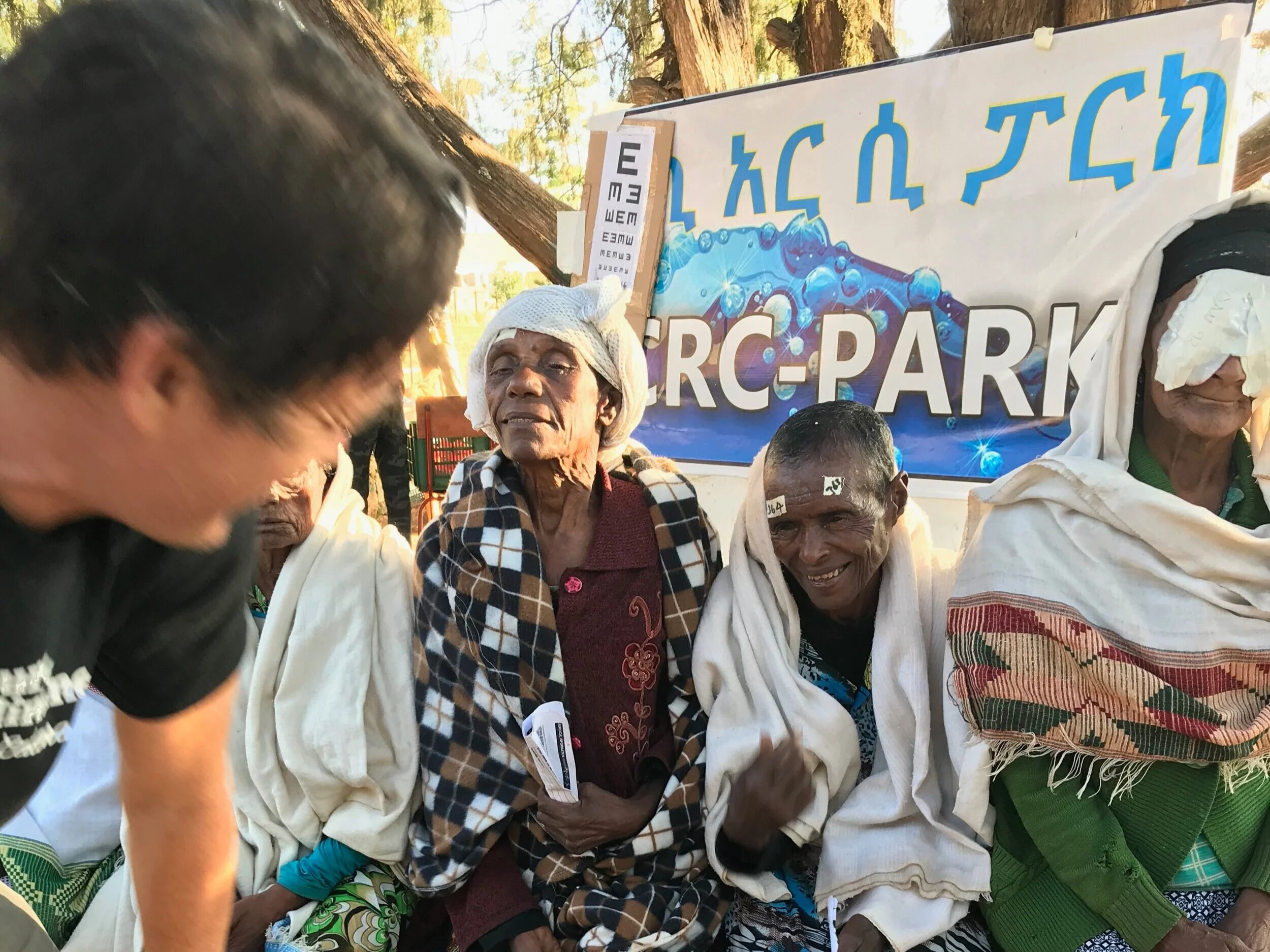Ari Aska of the Hamer tribe after successful cataract surgery
WEEMA wishes you a Happy belated International Women’s Day (March 8, 2020). In commemoration of this past Sunday, we wanted to share the beautiful story of one of our female patients from this year’s successful cataract campaign where we conducted more than 1000 surgeries in one week.
Ari Aska is a woman from the Hamer tribe of Ethiopia. The Hamer tribe live in Omo valley, about 115 km away from Kembata, where our cataract campaign was taking place. Ari was one of only four people from her tribe who decided to travel this far to get the cataract surgery. She lost sight in both her eyes many years ago, when her children were little. Now, when asked what she is most looking forward to, she said as she laughed “I can’t wait to go home and see how my children have changed. They will be so big now that I may not even recognize them after all these years.”
WEEMA is excited to see this campaign reaching people in isolated regions like the Omo valley. We hope to increase our cataract campaign accessibility for such communities in the future.
Photo credit: Martha Tadesse (@Marthinolly)
Ari and other members of the Hamer tribe waiting to have their eye patches removed after surgery.












